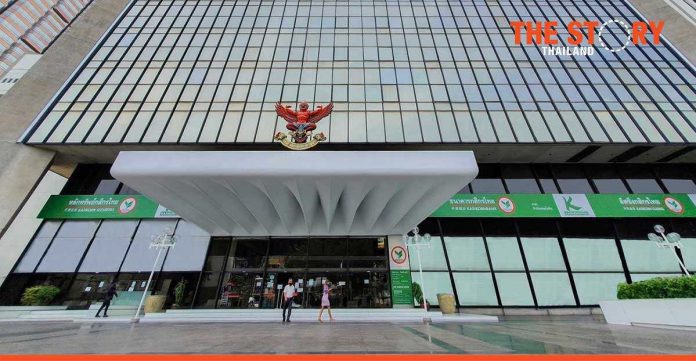Kasikornbank (KBank) has announced its Net Zero Commitment, targeting achievement of net zero in its own operations (Scope 1 and 2)* by 2030 along with net zero in its financed portfolio in line with Thailand’s aspirations, becoming the first Thai bank to have done so.
The business community across the world is contributing to a worldwide effort to prevent the worst impacts of climate change, by keeping the global warming temperature change at no more than 1.5°C, as set out in the Paris Agreement on Climate Change.
Businesses, cities and financial institutions from more than 130 countries have now set or are considering a target of reducing emissions to net zero by the middle of this century. Nearly 90 companies have committed to net-zero emissions by 2040.
- dtac’s 700 MHz network to back up Thailand reopening
- AIS teams up with Google and MRT offer people the new experience with 3D routing via Google Lens
Recently in Thailand, KBank, the country’s third largest bank, has announced aims to achieve the Net Zero Commitment in its own operations (Scopes 1 and 2) by 2030, along with net zero in its financed portfolio in line with Thailand’s aspirations.
Aspiring to pioneer green banking products, the bank has set aside at least Bt100-200 billion in sustainable financing and investment while also supporting its customers on their decarbonization journeys.
Along with these endeavors, KBank will contribute to the global effort to transition to net zero emissions by 2050 so as to mitigate impacts of climate change and will be align with the Paris Agreement goals.
Kattiya Indaravijaya, chief executive officer of Kasikornbank, says its commitment to be a leading sustainable Thai bank requires KBank to contribute to the net zero global effort. The goal is to mitigate impacts of climate change and support Thailand and the bank’s clients in regional economies to work together in the transition towards a net zero emission economy.
KBank’s Board of Directors has resolved to announce the bank’s Net Zero Commitment, as follows:
- KBank aims to empower every customer’s life and business. We support our customers in the transition to a net zero economy. Sustainability is deeply ingrained in how we serve our customers and manage our operations.
- We are committed to supporting Thailand and our clients in regional economies on their decarbonization journeys. We will contribute to the global effort to transition to net zero emission by 2050 and will align with the Paris Agreement goals.
- We are committed to be the leading sustainable bank in Thailand, allocating at least Baht 100-200 billion in sustainable financing and investment by 2030 and pioneering green banking products.
- We commit to becoming net zero in our own operations (Scope 1 and 2)* by 2030. We commit to achieving net zero in our financed portfolio in line with Thailand’s aspirations, accelerating this journey where possible. We will continually assess opportunities to take earlier actions as the technology, regulatory environment and external context evolves.
Kattiya asserts that the bank is confident of its operations based on the Bank of Sustainability principle, with emphasis on the environment, society and corporate governance.
The bank attaches importance to financial inclusion and literacy, as well as respect for human rights, and care for employees, communities and society under its business operations based on the principle of good governance, she said.
Also, KBank focuses on market conduct, ESG risk management, cyber-security and customer’s data privacy protection. All of these factors will eventually lead to sustainable benefits to all stakeholders, according to the CEO.
For the bank, cooperative actions are essential as sustainability cannot be achieved by any single organization alone.
“The bank is ready to be part of this global effort to ensure that such a change is possible, so that a balanced and sustainable world can be passed on to the next generations,” Kattiya said.
Here are the definitions of greenhouse gas emissions of different types:
Scope 1 refers to direct emissions from activities of an organization including stationary combustion, fleet vehicles (organization-owned), chemical treatment of wastewater, as well as fugitive and process emissions.
Scope 2 applies to energy-indirect emissions including an organization’s purchased energy such as electricity, heat and steam.
The Scope 3 standard is the only internationally accepted method for companies to account for these types of value chain emissions.





